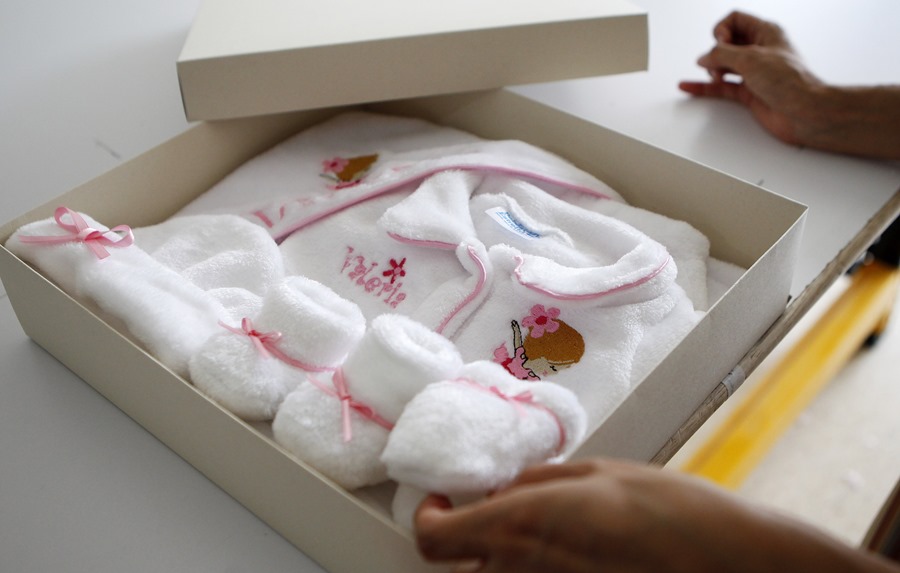Madrid (EFE).- The limit to the authorized number of children born in Spain from the same semen donor, a maximum of six, and the existence of a state registry of donors makes it practically impossible, according to experts, for it to occur in Spain a case like that of the Dutchman who is credited with the paternity of 550 children.
This is how Dr. Clara Colomé, director of the Valencian Infertility Institute in the Balearic Islands, sums it up for EFE, who asks for “calmness” after learning the news about the Dutch donor who has been sued by a foundation that facilitates the reunion of children and siblings born using this technique. .
The maximum authorized number of children born in Spain from the same donor cannot be greater than six, according to the 2006 assisted human reproduction law, updated in 2015, which establishes that the donation will never have a lucrative or commercial nature.
This maximum of six children authorized in Spain is well below the 25 descendants of the same donor allowed in the Netherlands.

In that country, moreover, the donor is not anonymous as is the case here and is obliged to reveal his identity, unlike what happens in Spain. In Spain, “every time there is a donation, it must be registered with certain parameters of confidentiality and anonymity,” says the doctor.
In addition, in our country there is a state registry of donations. “When the six (children allowed by law) have been born, gamete donations can no longer be made,” explains the head of the fertility clinic, who adds: “If there is no national registry, you can only control what happens in your clinic, not what happens next door”.
The Dutch man had been a donor at at least 13 Dutch and foreign clinics and is accused of deceiving women around the world by lying and minimizing the number of times he had donated their sperm.
Altruistic donation and compensation for inconvenience or travel

Spanish law insists on the altruistic nature of the donation, although it establishes a compensatory economic compensation to strictly compensate for the physical inconvenience and the travel and labor expenses that may be derived from the donation, which may not represent an economic incentive.
The regulation also warns that any advertising or promotional activity by authorized centers that encourages the donation of human cells and tissues must respect its altruistic nature, “not being able to encourage donation by offering compensation or financial benefits.”
In Spain, according to the doctor, “it is not so easy to be a donor”, and there are many physical and psychological controls that donors undergo, as do couples who go for assisted reproduction.
“There are physical characteristics of height, weight, race, eyes, blood group that have to be checked and that we do with Artificial Intelligence techniques, and of course the genetic part is checked to make a selection and guarantee that if you are a carrier of a disease, your donor is not a donor as well”, explains Dr. Colomé.
This makes it practically impossible in Spain for the same donor to have been valid for such a large number of reproductions, because, he explains, it would be very strange for such a large number of families to need the same genes.
Over 18 years of age and in good health, requirements to donate
In Spain, donors must be over 18 years of age, in good mental and physical health and have full capacity to act.
There is a protocol that studies their phenotypic and psychological characteristics, as well as clinical conditions to demonstrate that they do not suffer from genetic, hereditary or infectious diseases that can be transmitted to offspring.
The children will be able to know the identity of the donor exceptionally
Under the law, children born have the right to obtain general information from donors that does not include their identity.
Only exceptionally and in circumstances involving a certain danger to the life or health of the child or when appropriate in accordance with the criminal procedural laws, the identity of the donors may be revealed, provided that such disclosure is essential to avoid the danger or to obtain the legal end.
This privacy of the donors means that only the clinics deal with him, because he is completely anonymous, and there can be no direct contact between him and the families. “In Spain this cannot happen,” says the doctor.
Sperm banks, a complex reality
The truth is that Spanish families can access semen marketed in other countries and use it privately, in their homes, in the same way that someone can arrange with a friend to transfer semen to become a mother.
“The legal part is much more complicated in the sense that the situation can be complicated if there is a paternity claim, for example, and there is no medical control over that semen either,” says the IVI doctor.
However, there are families like the one made up of Carolina – who prefers to ignore her last name – and her wife who do not rule out accessing this private semen purchase formula to be mothers.
“I don’t care so much that the sperm is unique as that it comes from a healthy person and that he is not a criminal, and I understand that in that sense there are controls,” this woman explained to EFE.
As she assures, the news about what happened in the Netherlands does not affect her decision, because she, she says, does not believe in genes but in “the influence of culture and context” and she is not concerned that the child she is seeking to gestate “had blood brothers all over Europe.






